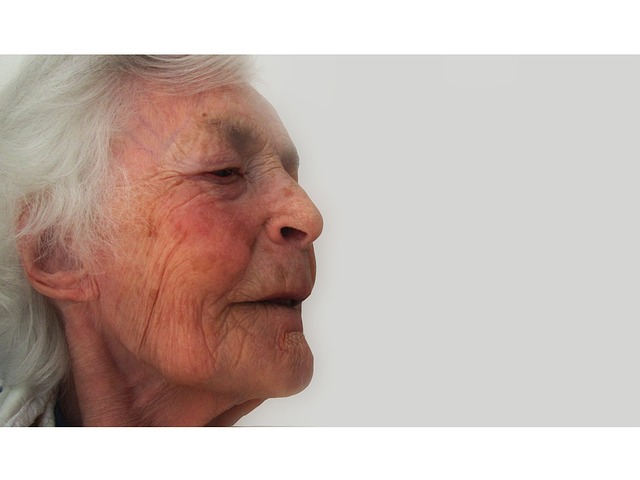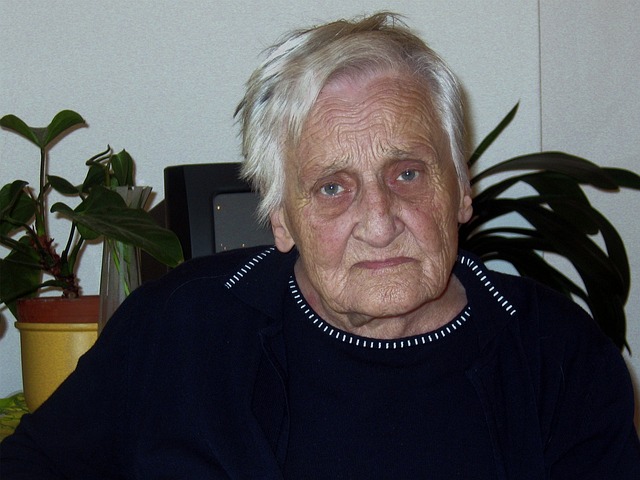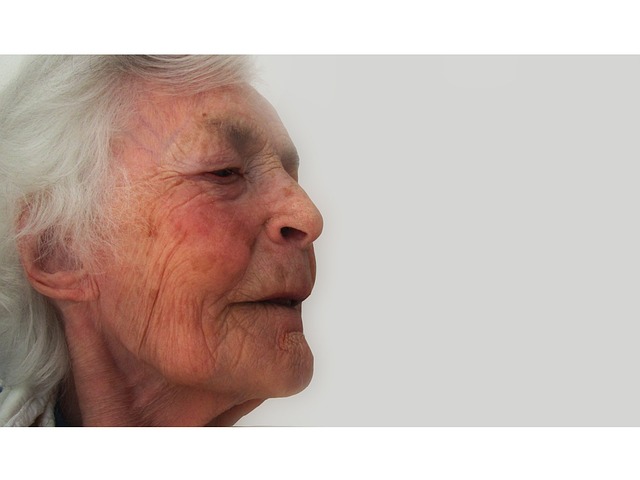Transform Senior Hygiene in Lyford, Texas: Free Resources for Better Care & Cost Savings
Looking for top-notch elderly care in Lyford, Texas? Our innovative solutions save you thousands by…….
In the heart of Texas, Lyford stands as a quintessential community with a growing elderly population, presenting unique challenges and opportunities in the realm of healthcare and welfare. “Elderly Care Lyford Texas” is not merely a service but a holistic approach to addressing the evolving needs of seniors, ensuring their well-being, independence, and quality of life. This comprehensive article aims to dissect and explore the multifaceted aspects of elderly care in Lyford, from its foundational elements to global implications, policy frameworks, and future prospects. By delving into these depths, we hope to shed light on the significance of this sector and its potential impact on both the community and the lives it touches.
Elderly care, in the context of Lyford, refers to a coordinated system of services and support designed to cater to the unique requirements of individuals aged 65 years and above. It encompasses a wide range of interventions aimed at promoting health, preventing illness, and enhancing the overall living conditions of seniors within their communities. The core components of elderly care in Lyford include:
Historically, elderly care has evolved from isolated, institutional settings to a more integrated and community-centric approach, reflecting a global shift towards respecting the autonomy and preferences of older adults. In Lyford, this transformation is evident in the growing emphasis on home-based care and supportive living environments that encourage seniors to maintain their independence as long as possible.
The concept of elderly care has transcended national boundaries, influencing global healthcare policies and practices. Lyford’s approach to elderly care is shaped by a worldwide movement towards recognizing older adults as valuable members of society, deserving of respect, dignity, and quality care. Here are some key trends and influences:
Aging Population: The global aging trend, characterized by an increase in life expectancy and declining fertility rates, has led to a rapid growth in the number of people aged 65 and above. According to the World Health Organization (WHO), the number of people aged 60 and over is projected to reach 2.1 billion in 2050, with the majority living in low- and middle-income countries. This demographic shift places a profound emphasis on elderly care services worldwide.
United Nations’ Aging Initiatives: The UN has recognized the significance of aging by establishing the International Association for Research and Policy on Aging (IARPA) and implementing various programs to address older people’s needs. These initiatives focus on health, social protection, and the promotion of active aging, setting global standards for elderly care.
Telemedicine and Technology: The integration of technology in healthcare has revolutionized elderly care globally. Telemedicine allows seniors to access medical consultations from home, while wearable health devices provide continuous monitoring. These innovations are especially beneficial for remote areas, ensuring better access to care for Lyford’s elderly population.
Community-Based Models: Many countries are adopting community-based care models, emphasizing preventive services and supporting older adults in their familiar surroundings. This approach aligns with Lyford’s focus on maintaining seniors’ independence and quality of life within the community.
The elderly care sector is a significant economic driver, generating substantial revenue and creating numerous employment opportunities. In Lyford, the economic implications are multifaceted:
Market Size and Growth: The global elderly care market was valued at USD 823.6 billion in 2021 and is projected to grow at a CAGR of 7.4% from 2022 to 2030 (Grand View Research). This growth is primarily driven by the aging population and increasing disposable incomes in developing countries. In Lyford, the demand for elderly care services is expected to rise as the local population ages.
Investment Patterns: Private equity and venture capital firms have shown a growing interest in the elderly care sector, investing in innovative technologies, home-based care services, and assisted living facilities. These investments not only contribute to infrastructure development but also enhance access to quality care for seniors.
Local Economic Impact: Elderly care facilities and services create employment opportunities across various sectors, from healthcare professionals to caregivers and administrative staff. According to a report by the AARP, in 2021, the aging population supported over 19 million jobs in the US alone, highlighting the economic significance of this sector.
Cost Considerations: Elderly care can be expensive, with costs varying based on service type, location, and duration. Lyford’s community-based approach aims to make care more accessible and affordable, while also exploring public-private partnerships to ensure financial sustainability.
Efficient elderly care systems are underpinned by robust policy frameworks that guide service provision, funding, and quality standards. In Lyford, various initiatives and regulations contribute to the overall well-being of senior citizens:
State and Local Government Initiatives: The Texas Department of Aging and Disability Services (DADS) plays a pivotal role in coordinating and overseeing elderly care services across the state. DADS provides funding, training, and support for local communities to develop comprehensive care plans tailored to their populations’ needs.
Medicaid Programs: Medicaid, a joint federal and state program, offers healthcare coverage to low-income individuals, including many seniors. Lyford’s elderly residents who qualify for Medicaid can access a range of services, ensuring financial accessibility to care.
Grants and Funding Opportunities: Federal and local grants support various eldercare programs, such as home delivery meals, transportation services, and fall prevention initiatives. These funding mechanisms enable communities like Lyford to implement innovative solutions and enhance service availability.
Quality Assurance: Strict quality standards are enforced to ensure the safety and well-being of elderly care recipients. Licensing requirements, regular inspections, and oversight by regulatory bodies guarantee that facilities meet specific criteria for staffing, care practices, and facility maintenance.
Lyford has embraced various innovative models to deliver elderly care services, ensuring their effectiveness and responsiveness to individual needs:
Interdisciplinary Teams: Care teams often consist of healthcare professionals, social workers, physical therapists, and caregivers, collaborating to provide holistic support. This team approach ensures that seniors receive comprehensive care addressing physical, emotional, and social aspects of their well-being.
Technology Integration: Wearable health devices, telemedicine, and mobile apps are used to monitor vital signs, schedule appointments, and facilitate communication between care providers and seniors. These tools enhance independence and enable remote monitoring, particularly beneficial for those with chronic conditions.
Home-Based Care: Lyford promotes home-based care as a preferred option for many seniors. This approach allows individuals to age in place, surrounded by familiar environments and communities. Home care services include personalized assistance with activities of daily living, medication management, and transportation to medical appointments.
Community Engagement: Local community organizations play a vital role in elderly care by offering social programs, meal deliveries, and transportation services. These initiatives foster social connections, combat loneliness, and promote active lifestyles among seniors.
While Lyford has made significant strides in elderly care, challenges remain that require continuous innovation and adaptation. Some key considerations include:
Workforce Shortages: There is a growing demand for trained caregivers and healthcare professionals to meet the needs of an aging population. Addressing workforce shortages through education programs and incentives can ensure adequate service delivery.
Financial Sustainability: Maintaining affordable and accessible elderly care services is essential. Public-private partnerships, innovative funding models, and community support are strategies to enhance financial sustainability.
Technology Adoption: While technology offers numerous benefits, ensuring digital literacy among seniors and care providers is crucial for effective utilization. Training programs and user-friendly technologies can bridge the digital divide.
Addressing Loneliness and Social Isolation: As a growing number of older adults live alone, combating loneliness and promoting social engagement becomes essential. Community initiatives and technology-enabled solutions can help connect seniors to their communities.
Looking ahead, the future of elderly care in Lyford presents exciting opportunities for transformation and improvement. Here are some potential developments:
Personalized Care Plans: With advancements in technology and healthcare, personalized care plans will become the norm, considering each senior’s unique needs, preferences, and goals. This approach ensures more effective and satisfying care experiences.
Integrative Healthcare: The integration of mental health services, dental care, and specialty clinics into elderly care systems will enhance overall well-being. Holistic healthcare models address multiple aspects of an individual’s health, promoting a longer, healthier life.
Digital Health Solutions: Telemedicine, mobile health apps, and remote monitoring technologies will continue to grow in popularity, offering convenient access to care. These solutions can also enable better disease management and improve patient outcomes.
Community Partnerships: Collaboration between local organizations, businesses, and volunteers can strengthen elderly care support networks. Such partnerships can lead to more diverse service offerings and increased community engagement.
In conclusion, elderly care in Lyford has made significant strides, and continuous innovation will be crucial to meet the evolving needs of its senior citizens. By adopting best practices, leveraging technology, and fostering community involvement, Lyford can ensure that its elderly population receives exceptional care and support throughout their later years.

Looking for top-notch elderly care in Lyford, Texas? Our innovative solutions save you thousands by…….

Looking for reliable and affordable elderly care in Lyford, Texas? Our top-rated services offer a re…….

Looking for reliable and affordable elderly care in Lyford, Texas? Our innovative solutions save you…….

Looking for reliable and affordable Elderly Care Lyford Texas? Best Lyford TX Care offers a game-cha…….

Looking for peace of mind in Lyford, Texas? Best Local Homemaking offers tailored elderly care servi…….

Looking for top-quality Elderly Care in Lyford, Texas? Our tailored companion services offer more th…….

Transform the quality of life for your loved ones in Lyford, Texas with our professional elderly mea…….

Looking for reliable and personalized elderly care in Lyford, Texas? Best Local Caregiving offers a…….

Looking for top-quality elderly care in Lyford, Texas? Simplify your life and gain back precious tim…….